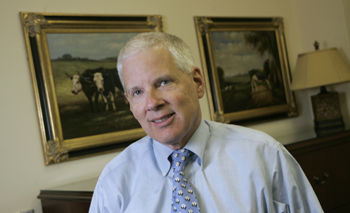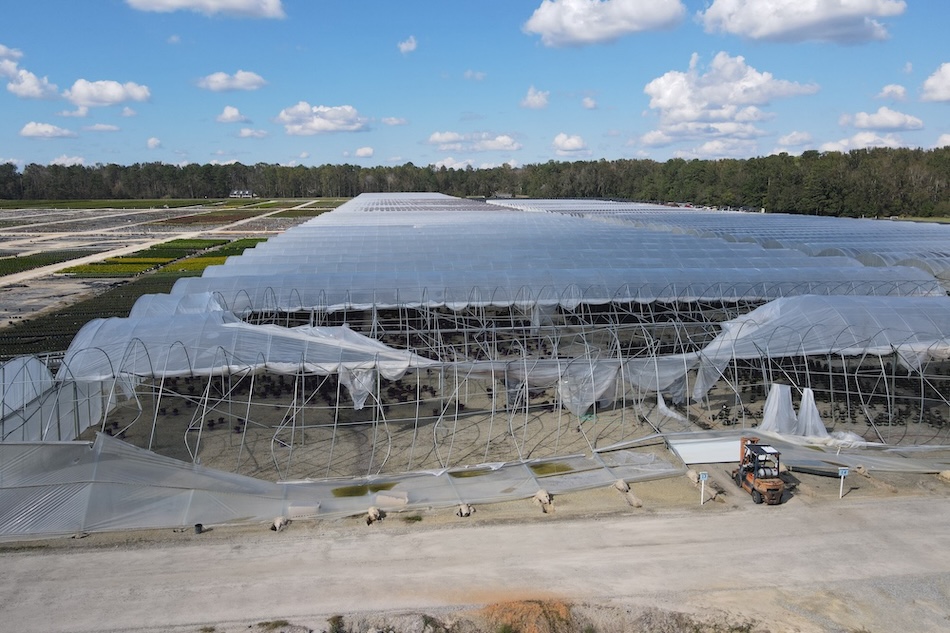A report this week from the Foreign Agricultural Service and the USA Poultry & Egg Export Council shows U.S. poultry meat exports in February increased by 15 percent in quantity and nearly 18 percent in value over the same month last year. This signals an improvement in the world economy, but also shows the value of our ports and agriculture’s driving force to improve our economic situation.
The same report cites shipments to Mexico rose by 11 percent and to Hong Kong 10 percent. Exports to Taiwan jumped 44 percent, while shipments to South Korea surged 97 percent over last year’s total. We shipped 23 percent more poultry to Iraq and 12 percent more to Russia.
Significantly stronger shipments were sent to smaller markets such as the Philippines, the United Arab Emirates, the Republic of Georgia, Canada, Haiti, Singapore, Chile, Jamaica, Ghana and Japan.
Mike Giles, president of the Georgia Poultry Federation, said 20 percent of the poultry produced in the U.S. is exported. Georgia poultry producers benefit from their strategic location near the Port of Savannah, the nation's leading port for exporting chicken.
Food, fiber (mostly cotton) and feed for animals also continue to escalate in value. Barring a drought or other natural disaster, this will be a record year for Georgia’s farm economy. The agrarian economy, unlike other sectors of our economy, is poised to significantly expand in Georgia and to become the economic engine to drive our future.
One hundred years ago, one farmer produced enough food to feed two of his fellow Georgians. With technology, innovation and improved practices, the average farmer today produces enough food to feed more than 300 people.
But should we expand our agrarian economy?
Less than 2 percent of Georgians now works on a farm. Yet, agriculture is the state’s largest industry. Agriculture generates $12 billion annually at the farm level. By the time these raw farm materials reach tables or homes, they contribute $69 billion to Georgia’s economy. Agribusinesses keep our economy running and employ 13 percent of Georgia’s workforce, and it’s growing.
The world will need to double food production to meet population demand in the next 40 years. Many areas of the world won’t be able to meet this challenge. Of existing farmland, poor soils and climate, political instability or government meddling combine to limit the new food that must be grown.
With our ability to feed the world comes the moral imperative to do so. We can’t turn our backs on hungry people and nations when we can provide the food they need.
Can we expand our agrarian economy?
Georgia is lucky. From north to south, Georgia’s soils are good for growing food. We have abundant sunlight to promote plant growth. Even when we have severe drought, we still have more rainfall and available irrigation water than most places on Earth. We have more and higher-quality water than most other important growing regions.
Not only can we produce food and fiber here, we can ship it to the rest of the world. The recent increases in poultry exports are just one example. Our ability to supply the world market will dramatically improve.
The Port of Savannah will hopefully be deepened so that larger ships can load and unload there. When the Panama Canal is widened for larger ships to pass more quickly to Asia, we are ready to assume our new role as a source of food and fiber for Asia and the rest of the world.
Will we expand our agrarian economy?
Georgia fortunately has good agricultural leadership and policies. Farmers in Georgia have an absolute right to practice their profession. That is not the case in other states where farming goes unappreciated and farmers are leaving in droves. If farmers move away, who will produce the food needed for their state or the world?
Many agribusinesses leave other states and move to Georgia. Our right to work laws and responsible state policies make us an attractive state for businesses. Our pleasant people, climate and world-class airport don’t hurt either.
Sure we have many problems to solve. Immigration is just one that today seems almost hopeless given the federal government’s reluctance to deal with the problem.
But through more research and study, we are confident we will continue to improve crop planting and harvesting. Machines to harvest apples, for example, aren’t that far off.
The agroeconomy didn’t fall as far as other economic sectors during the recession. And, it’s growing back quicker as exports expand. We can’t do without food. Agriculture is one of the few areas of our economy where the U.S. routinely has a positive trade balance. In 2010, agriculture accounted for a $47.5 billion positive influence on the balance of trade.
Given our ability in Georgia to produce more food and the world’s need for substantially more food over the next 40 years, we are ideally suited to expand our agricultural economy and keep Georgia’s economy on solid ground.






.jpg)

